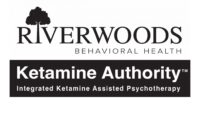Ketamine and Treatment of Crisis Therapy
A crisis is an overwhelming event such as the discovery of a serious illness, thoughts of suicide, the loss of a loved one, a divorce, or exposure to violence. A crisis can be a traumatic event or experience, but can also be how an individual reacts to a situation. Crisis therapy is a short term intervention to help reduce the impact and damage of the event as well as stabilize the individual in crisis.
Crisis Therapy is complex and requires treatment tailored to the specific needs and symptoms of the client. Crisis Therapy is usually brief and focuses on assessment of the situation, making a plan to stabilize the client, treatment, and maintenance. Therapy may not be limited to the individual, but may also include family members. Loved ones can be both a source of support and conflict, however, including them in treatment can help them understand, gain coping skills, and improve communication. Our counselors are skilled crisis therapists and are trained in Positive Psychology, Cognitive Behavioral Therapy (CBT), and Acceptance and Commitment Therapy (ACT).

